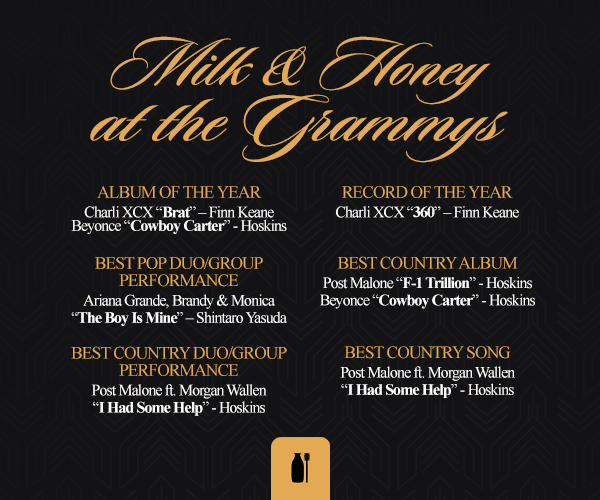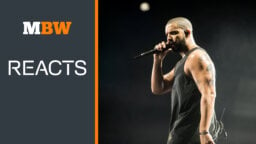MBW Reacts is a series of analytical commentaries from Music Business Worldwide written in response to major recent entertainment events or news stories. Only MBW+ subscribers have unlimited access to these articles. The below article originally appeared within the latest MBW+ Monthly Review email, issued exclusively to MBW+ subscribers.
Six months ago in this column, I laid out why I believed we were odds-on to see a large-scale (likely $1bn+) acquisition in the independent distribution and services space this year.
The company I suggested was most likely to execute that acquisition: Warner Music Group, under still-relatively-new CEO, Robert Kyncl.
Subsequent to that column being published, Warner began sniffing around Believe, mulling a potential USD $1.8 billion bid for the French company before ultimately walking away. Believe was not deemed the ideal M&A target for Warner – but I still reckon we’ll see one or multiple acquisitions from WMG in this field in the months ahead.
There are a few key reasons why, beyond the fact that Kyncl has previously expressed his desire to accelerate Warner’s presence amongst “middle-class” indie artists.
Firstly, Warner will be keen to close the gap, size-wise, on its two biggest rivals. In calendar 2023, Warner Music Group generated USD $6.3 billion in revenues; according to MBW’s calculations, Sony generated $9.3 billion (from recorded music and publishing, plus related income streams), while Universal Music Group generated $12.0 billion.

Sony, in particular, has benefitted from some game-changing inorganic growth over the past ten years (via its acquisitions of AWAL, EMI Music Publishing, The Orchard, Som Livre etc.). Its biggest competitors have spent less aggressively through the same decade, following the mega-buys in 2012/2013 of EMI Music (UMG) and Parlophone Label Group (WMG).
Another key driver for Warner Music Group’s acquisitive interest in the modern indie distribution sector? The changing face of the music biz.
New stats from Luminate, published last month, tell the story. In the US in H1 2024, indie distribution companies handled:
- 62.1% of tracks that were played between 1 million and 10 million times on on-demand audio streaming services;
- 37.4% of tracks that were played between 10 million and 50 million times;
- 22.1% of tracks that were played between 50 million and 100 million times;
- and 13.6% of tracks that were played between 100 million and 500 million times.
In every one of these categories, the indie (i.e. non-major-distribution) sector grew its market share vs. the second half of 2023.

The majors aren’t losing too much sleep at the top-end of the market: 43 of the 46 tracks that streamed 1 billion+ times in the first half of 2024 in the US, says Luminate, were distributed via one of Warner, Sony, and Universal.
Indeed, the three biggest audio streaming hits in the US in H1 2024 – Benson Boone’s Beautiful Things, Zach Bryan & Kacey Musgraves’ I Remember Everything, and Teddy Swims’ Lose Control – were all released by one WMG label, Warner Records, led by Aaron Bay-Schuck and Tom Corson.
Still, according to Luminate (see above), indie-distributed tracks claimed 9.9% of ‘stream-share’ of those tracks played more than 500 million times apiece in H1 2024 in the US.
That was up from the 7.1% market share of the non-major sector in the same tier (of tracks played 500m+ times each) in H2 2023.
To put it another way: around one in ten plays of those tracks that achieved 500m+ streams in the US in H1 2024 was of music not distributed by a major record company.
(One factor in this story worth mentioning: Bertelsmann-owned BMG withdrew its recorded music streaming distribution from Warner’s ADA towards the end of last year; it now distributes directly to YouTube and Spotify.)
So if Warner isn’t interested in Believe, might it swoop for something else?
Possibly not. On WMG’s Q1 earnings call in May, Robert Kyncl indicated that, in the wake of its Believe saga, Warner might opt to build – rather than buy – to advance its business working with indie artists. (Kyncl’s exact words: “[We]’re building solutions in-house while staying vigilant about M&A opportunities.”)
Senior sources at Warner have told me that, whatever Kyncl’s next move, the exec is laser-focused on protecting WMG’s margins from being diluted by any large-scale acquisition.
For this reason, Kyncl may instead opt for a strategy of rounding up smaller indie disties — continuing a global plan that has already seen Warner buy (or buy into) Africa-based Africori, Middle East-based Qanawat, and Brazil’s Sua Música over the past two years. (On the subject of margins, it’s possible that Warner/Kyncl considered Believe’s adjusted annual 2023 EBITDA margin of 5.7% too low when considering a takeover of the French firm.)
Regardless, I still predict that Warner will make a sizable indie distribution acquisition sometime in 2024. One reason for that is its relative regulatory freedom to do so vs. Sony and Universal, each of whom would likely attract scrutiny from competition watchdogs for purchases over a certain scale. (See: the UK’s CMA giving Sony a torrid time over its AWAL purchase in 2021 before eventually clearing the deal.)
Remember also that Robert Kyncl has just hired Michael Ryan-Southern from Goldman Sachs as his global head of acquisitions, with an official mandate to “supercharge” WMG’s M&A efforts.
One potential future target for Warner is Downtown Music Holdings, which runs both publishing and recorded music services arms, while owning the likes of CD Baby, FUGA, and royalties platform Curve.
A global ‘pure-play’ services company (i.e. it owns no copyrights), Downtown is understood to generate around $900 million per year in total revenues; Billboard reports that around $130 million of that annual money ends up as net revenues at Downtown, powering a $40 million annual EBITDA.
Downtown employs approximately 600 people worldwide — around a third of Believe’s headcount, which stood at 1,919 at the close of 2023, according to financial filings. (Believe would likely argue here that its structure positions it for accelerated future growth and global exploitation of copyrights.)
Alongside Downtown, you can also expect the names of a number of other US-based independent players to cross Robert Kyncl’s desk this summer, including EMPIRE (currently enjoying a worldwide smash with Shaboozey’s A Bar Song), Create Music Group (with its shiny new $1bn valuation), TooLost, UnitedMasters, and Stem.
With Kyncl’s keenness to avoid excessively diluting Warner’s margin via M&A, another potential target could be ONErpm. An independent and healthily profitable recorded music company, ONErpm operates in 40 markets with a nine-figure turnover and 550 employees. Remarkably, the firm continues to be 100% owned by its founder, Emmanuel Zunz.
Zunz told The MBW Podcast last month: “I have a three-year trajectory that I’m working towards, and that is to grow [ONErpm] by 50% or 60% by the end of 2026.
“If I hit those goals, this company will be very, very profitable.”Music Business Worldwide





